Low Testosterone: Hypogonadism
Low testosterone otherwise known as hypogonadism some people refer to as male menopause or Adam you know the disease of the aging
Male testosterone is very is the hormone in men as estrogen is the hormone in women. Starting around the age of 30 or so the male hormone does slowly start to decrease. But it’s all relative and you know there is no absolute number it is a blood test that we do check for but it’s not necessarily like a specific blood test, unlike other blood tests that we look for where there could be a very wide range of normal as the male hormone testosterone does slowly decrease with age. It is a powerful hormone that that does a lot of very positive effects on a man.
Why does everyone even care about testosterone?
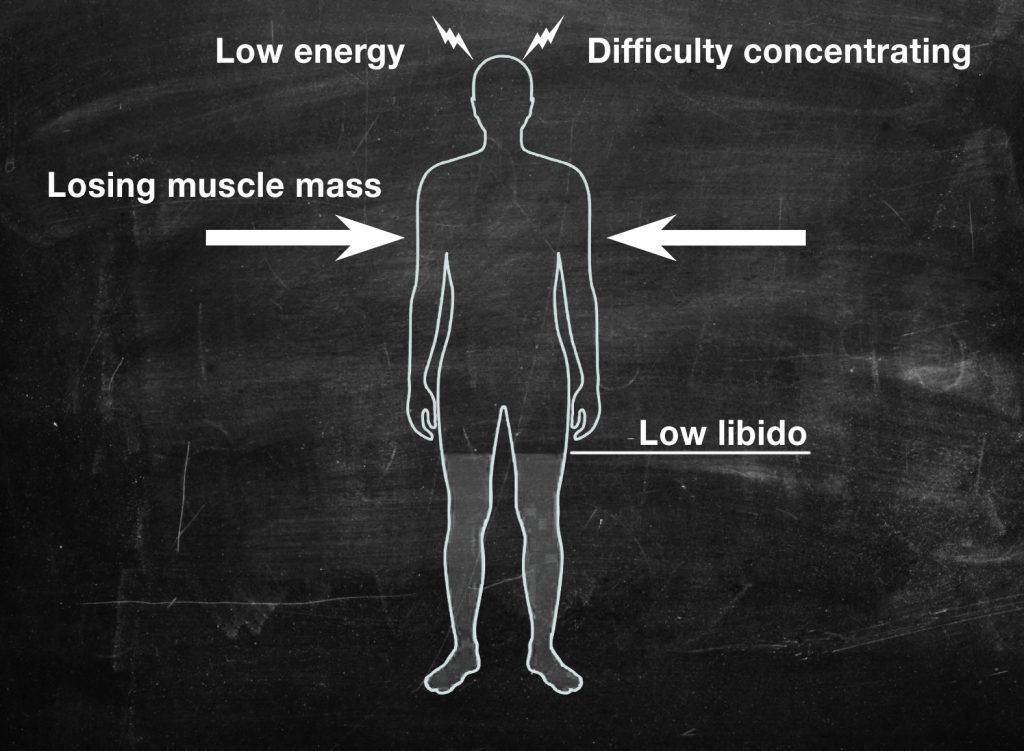
Having low testosterone can create a lot of unwanted symptoms like:
- Low libido;
- Low energy;
- Difficulty concentrating;
- Losing muscle mass.
So not only does it cause these frustrating symptoms, but it can also be a risk factor for other really scary things like:
- Heart disease;
- Metabolic syndrome which includes diabetes and hypertension;
- Osteoporosis;
- even all-cause mortality or death.
Making sure that your testosterone levels are optimal is important.
Number one: lose weight.
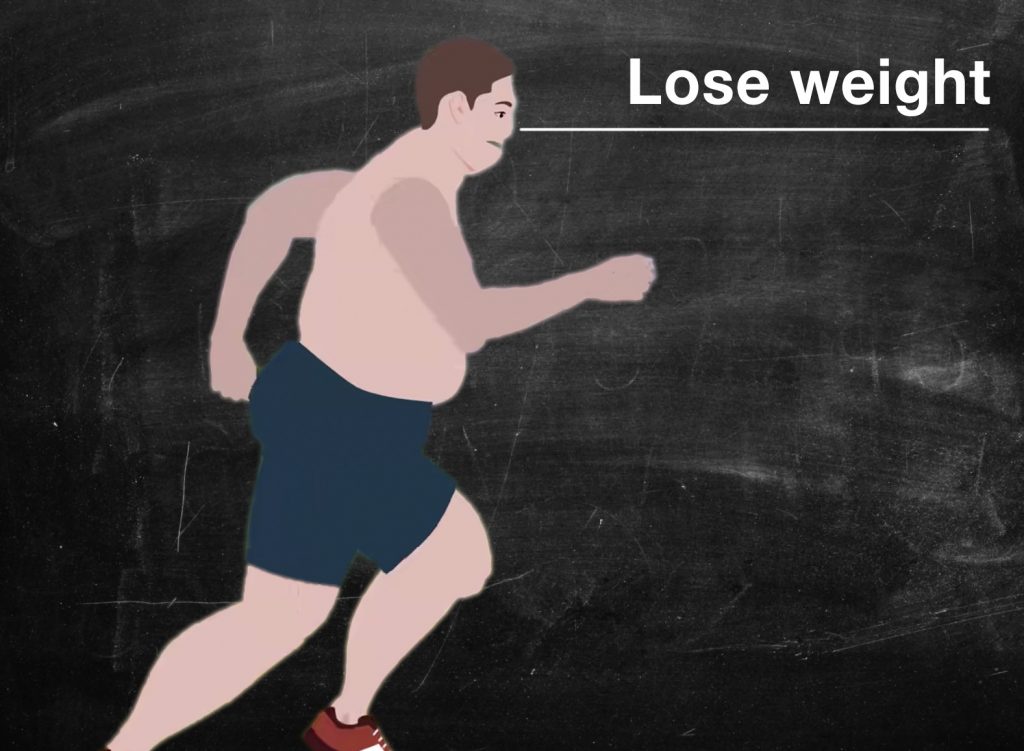
Why does it even matter?
The reason being is that obesity or being overweight means that you have more fat cells and fat cells have a specific enzyme in them that takes all that good healthy testosterone and converts it into estradiol.
It is well understood in the scientific literature that weight loss and overweight and obese men can help boost testosterone levels significantly.
How much weight do you need to lose?
In one study they looked at the amount of weight loss that was needed to increase testosterone levels and they found that an average of 21 kilograms or nearly 46 Pounds was the average amount of weight loss by people who did increase their testosterone level.
Do you need to lose 46 Pounds?
Sure that would be great. But another study looked at specifically physical activity and diet and how those contribute to increasing testosterone. So what that study concluded was that increasing your activity level could reduce the amount of weight loss that you need. If you increase your physical activity, you might need to lose even less weight, something like 12 kilograms or 26 pounds.
Number one: exercise
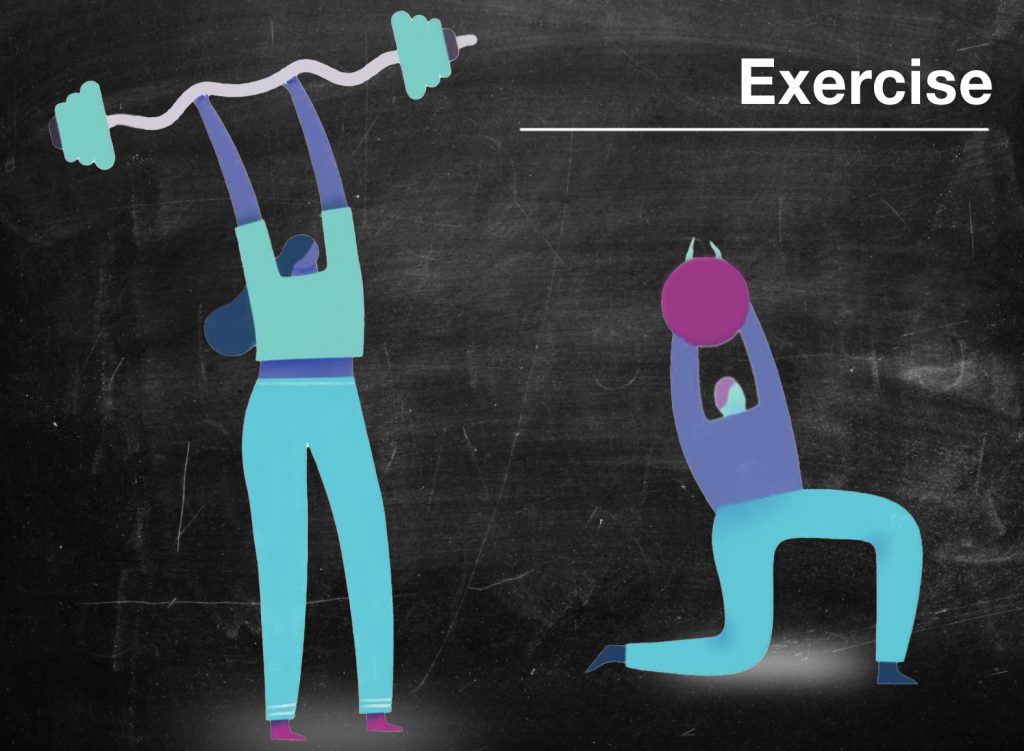
What kind of exercise should I just go for a walk?
They’ve studied this. They looked at young healthy men who are already physically active and they put them into two categories. They put them into a steady-state exercise where they ran to achieve a certain output for 40 to 45 minutes at a continuous level.
The other half was put into a group of high-intensity exercise and which means they went for 90 seconds at a high output and 90 seconds in a recovery zone and they did that for about 42 to 47 minutes.
They measured their blood levels before the exercise guys after the exercise and 12 hours later and they found that those who did the high-intensity interval training did increase their testosterone levels significantly more than those who did steady straight training.
However, after 12 hours they found that this highness of the interval training had a lower testosterone level and they hypothesized that they were using the testosterone to help recover during that time. So yes, there may be some benefit to doing high-intensity interval exercise rather than just going for a walk or going on a steady-state exercise.
So my take-home is to do some high-intensity interval training for a short burst of time and that will increase your testosterone level and be easier to do regularly. So while exercise is super important for boosting your testosterone, you can’t lose weight without going on diet, which is our
Number three: recommendation diet.
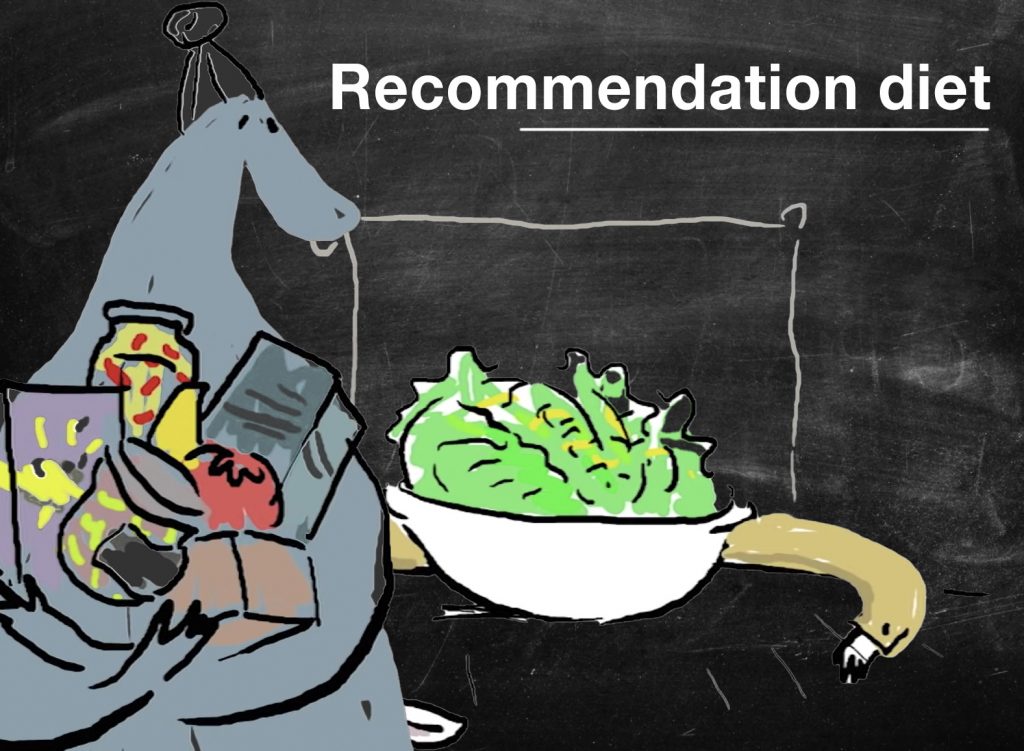
What kind of diet should you eat?
There are lots of claims about testosterone-boosting foods and certainly, there are foods that might be better to help boost your testosterone.
How much do you need to eat to make a real impact?
It’s hard to say. I tell all my patients is avoid processed foods, and eat natural foods and fruits and vegetables that you find at the supermarket in the produce aisle.
But I want to tell you about this very recent study that just came out in 2022. they looked at the National Health and Examination Survey or Nhame study which is a nationally density looking at people all over the country in the United States and getting a lot of information about their diet, their activity level, and blood and urine samples to obtain data that can be used to find correlations between certain things.
What did this group do?
They looked at the dietary type of men and their testosterone levels.
What did they find?
Men who restricted fat in their diet were likely to have a lower testosterone level than those who didn’t restrict fat in their diet.
Does that mean you should eat fatty foods?
I think that specifically if you are a normal-weight individual who wants to boost your testosterone, I would not limit fats in your diet because that may be limiting your ability for your body to produce testosterone. But if you’re overweight, improving your weight is more important than changing the components of your diet. Also, I get a lot of questions about soy products.
Our soy products gonna make my testosterone level drop.
The reason this comes up is that soy has estrogen-like compounds called isoflovanes, which are concerning for people who want to increase their testosterone levels.
But what does the data say?
So a 2010 meta-analysis looked at 47 different studies and compiled all the data and they found even a high intake of soy would not reduce your testosterone levels.
I’m going to tell you about one of these studies.
This study took young men between the ages of 18 and 30 and they were randomized for four weeks to twice a day take either a vanilla-flavored soy protein or a vanilla-flavored whey protein or a vanilla-flavored cake mix. They got these little plastic baggies with them and they were supposed to take it for four weeks and see how it impacted their testosterone levels.
What this study found?
That even this high intake of soy proteins, which was the equivalent of 41. 5 grams of soy protein per day, did not affect testosterone levels even after taking it consistently for four weeks.
My advice to you is don’t worry too much about the soy products that you’re eating, especially if you’re getting good healthy protein from soy products. It’s probably not going to impact your testosterone levels.
Number four: good sleep.
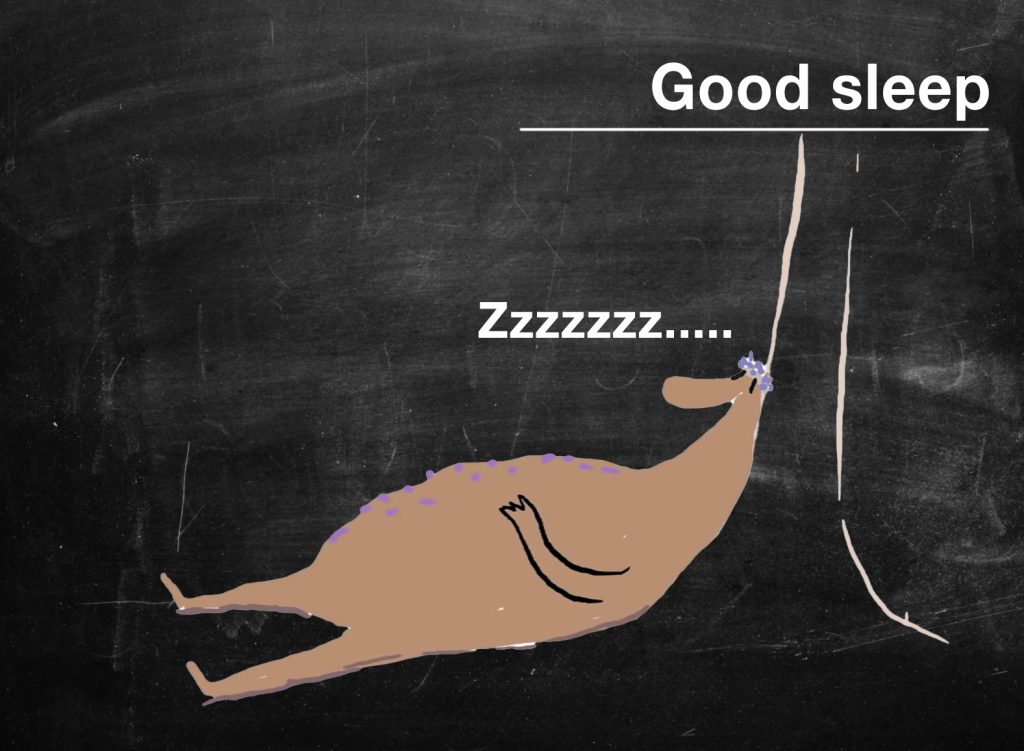
Did you know from 1985 to now there has been actual data to suggest that American adults are getting less and less sleep and poor quality of sleep?
How Does that sleep impact your testosterone levels?
There are two interesting studies on this. Once I looked at 2300 men in that same National Health and Nutrition Examination survey or the Nhane survey. They found:
Per each hour of sleep that people reported getting less, their testosterone decreased by almost six points.
Another study looked at 10 healthy men and what they did was they had them sleep for three days over eight hours and then after that they slept for eight days and were required to sleep for only five hours and they measured their daytime testosterone levels.
What did they find?
That they decreased their testosterone levels by 15% and where they get this idea of sleeping for five hours, well actually they found that this is the exact sleeping pattern or sleep restriction of 15% of the working adult population. So sleep is super important.
More recent data has suggested that it might be related to the time when you wake up, so there may be some circadian rhythm Association. So if you’re waking up early, that may be more detrimental to your testosterone level than going to sleep a little bit later. So the bottom line is to get better sleep and sleep for longer periods. So try to reduce sleep interruptions, avoid looking at your phone before bedtime and try to get into a bedtime routine and go to sleep around the same time and wake up around the same time every day.
Number five: avoid endocrine-disrupting chemicals.
Endocrine-disrupting chemicals are found throughout our environment due to pollution in certain Cosmetics or consumable items as well as Plastics. The most popular of these is called Bpas or bisphenol A.
How do these work to impact your testosterone levels?
They disrupt endocrine action and testosterone is created through an endocrine process. So being exposed to endocrine-disrupting chemicals can result in some problems. They’ve been found to be associated with not only low testosterone but diabetes, obesity, learning problems, and even cancer. Another study looking at the Nhanes database looked at young adults so young kids and found out their level of BPA exposure by looking at their urinary concentration and also correlated this with their testosterone level they found that adolescent boys having a higher amount or higher exposure to Bpas was correlated with a lower testosterone level.
How can you avoid Bpas?
Well, avoid using plastic containers, use Alternatives like glass or metal or other things and don’t warm things up in plastic containers. You can also cut back on your use of cans and look for products that are labeled BPA-free. You’ll see that all over BPA-free. That means that they don’t have bisphenol A, which is important in avoiding those kinds of endocrine-disrupting chemicals. So wait, don’t leave yet.
Supplement that might boost testosterone.
This is called Ashwagandha.
What is Ashwagandha?
Ashwagandha is an herb that has been tatted to have really good benefits of stress relief and anxiety reduction and so this has been studied in a randomized trial, meaning that they took 60 adults and they randomized them to receive either ashwagandha or a placebo medication and what they found was that they did increase their testosterone levels, but this was not statistically significant.
What does that mean?
It means that it’s likely due to a change in the chance that that increase happened. They did find, however, that there was a reduction in anxiety and depression in people who were taking the supplement. Certainly, that can reduce your stress levels, which can be important for improving testosterone levels overall.